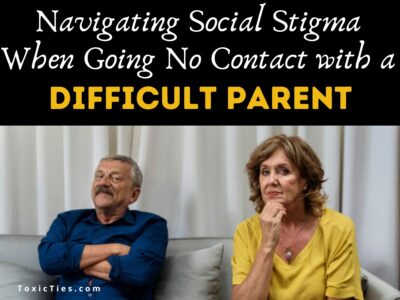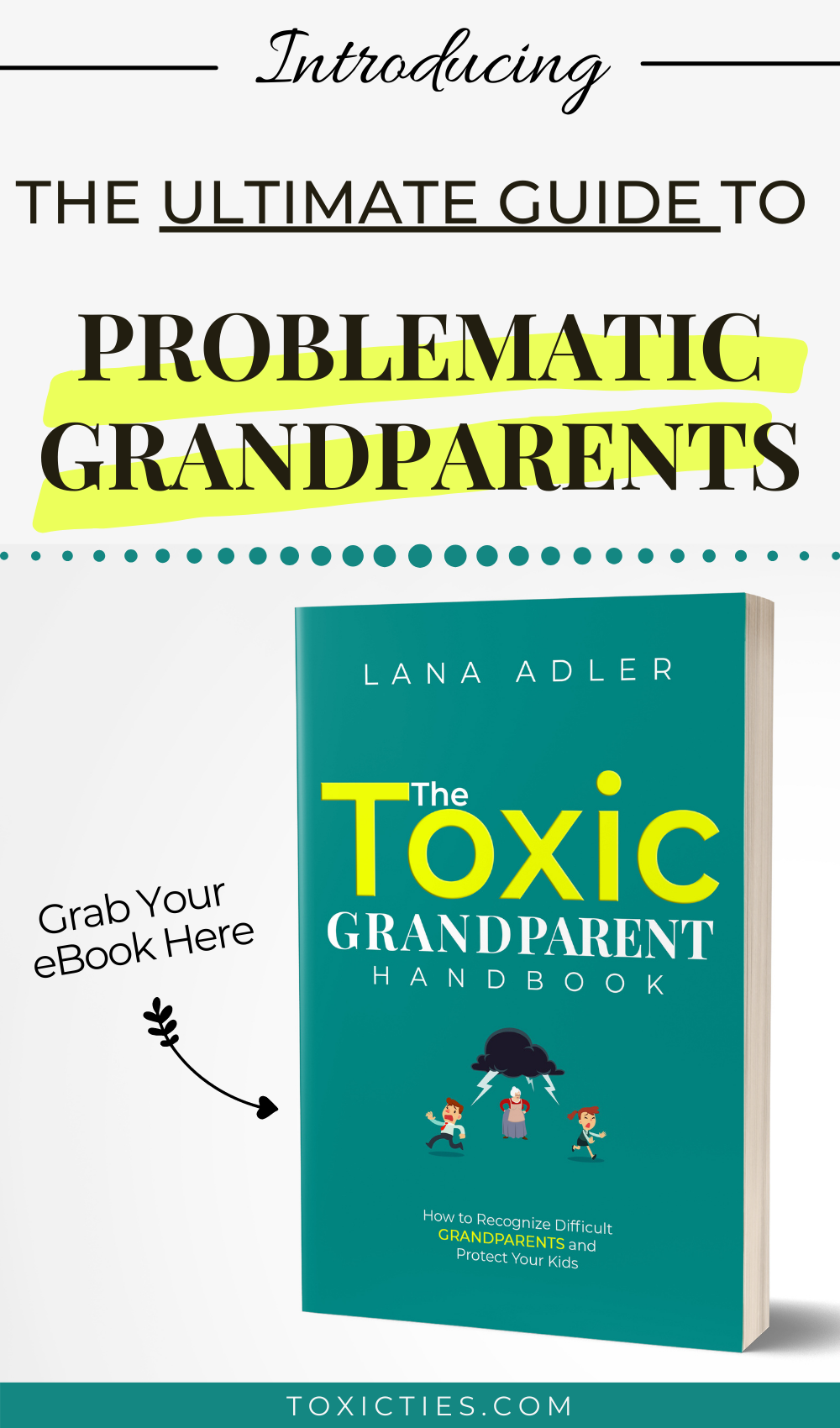If you have a narcissistic parent, you can play one of two polar opposite roles in your family: golden child or scapegoat.
If you’re a golden child, you’re your parent’s favorite little darling and you can do no wrong.
In most people’s eyes, this is an enviable position to be in, especially if you consider the alternative — a scapegoat. A scapegoat, as the name suggests, is a family outcast who is bullied and abused by a narcissistic parent.
However, a golden child pays dearly for their spot on the pedestal. In fact, you can argue that being a narcissist’s scapegoat is preferable to being their favorite.
This article will explore the darker reality behind being a narcissistic parent’s golden child.
But first, let’s answer the obvious question: why do narcissistic parents play favorites with their children?

Why do narcissistic parents have favorites?
The common assumption is that all parents love their children equally. And even though it may not always be true, most parents will make a conscious effort to treat all their children the same, even if they have a favorite.
But a narcissistic parent is typically very blatant about “who is who” in the family. The golden child is demonstratively adored, while the scapegoat is ignored and denigrated.
To understand why they act this way, you have to delve into the psyche of a narcissist.
Arrogant and self-righteous on the surface, narcissists feel worthless and insecure on the inside. In order to resolve this dichotomy, they use projection — a defense mechanism that allows them to take everything they can’t face about themselves and attribute it to another person(s).
Children are perfect receptacles for their parent’s projections. A scapegoat child (or children) will embody the rejected parts of the narcissist’s ego, while a golden child will become the manifestation of the narcissist’s idealized imaginary self.
A narcissistic parent also plays favorites to maintain control over the children and make them compete for her attention using divide-and-conquer, triangulation, blame game, and other manipulative tactics.
This way the children are constantly pitted against each other, vying for their narcissistic parent’s love and validation. The parent remains at the top of the pyramid, getting narcissistic supply from all her children.

What is Golden Child Syndrome?
Golden Child Syndrome is the long-term effects of growing up as a favorite child of a narcissistic parent.
In this family dynamic, the parent showers the child with affection but also demands total obedience. Furthermore, they expect the child to be perfect and pin all of the family’s hopes and dreams on him or her.
So, the child is idealized and praised for every accomplishment, however minor. But also, the child is placed in a straightjacket of their parent’s expectations.
Does the narcissist love the Golden Child?
It’s debatable whether or not narcissists truly love their children. I suppose it would depend on the degree of narcissism. The more narcissistic the parent, the less capable they are of unconditional love.
After all, parental love isn’t a guarantee. Some parents don’t love their children.
In the scapegoat’s case, the parent’s disdain for the child is apparent and relentless. Love doesn’t even enter into the equation, although they often frame their emotional abuse as love. For example,
- I’m only hard on you because I care (implies that mistreatment is a form of love)
- I just want the best for you (implies that the parent always knows what’s best)
- You only have one mother/father (implies that abuse is OK as long as it’s perpetrated by a parent)
In the golden child’s case, it appears that the narcissistic parent loves the child with abandon. But it’s the kind of love that suffocates the child and annihilates their self-identity.
The golden child stays “golden” as long as they play their role well. The moment they rebel, the parent discards or punishes them until they come back to their senses (and they usually do).
So does a narcissistic parent love the golden child? Let’s put it this way: they love themselves in their chosen child.
The narcissist’s love is always self-directed. In that sense, children aren’t real people to them. They are extreme projections of the parent’s own best and worst qualities.
So as long as the narcissistic parent sees the golden child as the extension of themselves, they can “love” them and even act in sacrificial and selfless ways.
But that love is a fickle phantom of a damaged and restless ego.
And in the end, the golden child pays a high price for that love.

What happens to a Golden Child of a narcissist?
Although the golden child grows up enveloped by their parent’s all-consuming love, they have a hard time translating that experience into self-love and a stable self-identity.
That’s because the narcissistic parent’s love is conditional, and children can sense that. They feel unloveable unless they “perform.”
As a result, golden children may develop dysfunctional behaviors and tendencies such as
- people-pleasing
- perfectionism
- self-sabotage
- low self-esteem
- extreme codependency and enmeshment with a narcissistic parent
- dependence on external validation in general (lack of internal self-worth)
- no authentic self-identity (except for the one forced by the parent)
- narcissism (since they’re used to preferential treatment)
- anxiety and depression (since they often perceive themselves as failures)
- unhealthy relationships (either too clingy or too emotionally distant)
- unhealthy coping mechanisms (drugs, alcohol, and other addictions)
Not only that, golden children are so conditioned to depend on love and validation from their narcissistic parent that they are often unable to recognize the unhealthy family dynamics and break free from their parent’s incessant control.
Even when golden children believe they’ve become independent adults who make their own choices, on a deeper level they still act out of a childish desire to please their parent.
Because if they do break free, the script can be flipped and they can become the new scapegoat of the family. Knowing what their sibling(s) had to endure growing up, and how the narcissistic parent treats their spouse (the enabler), golden children are reluctant to volunteer for that position.
It would mean sacrificing their “crown,” even if it’s a crown of thorns.
So they are often doomed to remain enmeshed with their narcissistic parent, unable to reach emotional maturity and create a truly authentic life for themselves.

Is it better to be the Scapegoat or the Golden Child?
It would seem that the golden child got the better end of the deal. They got to be their parent’s favorite. They got to taste the sweet nectar of complete adoration and approval.
If you were your narcissistic parent’s golden child, you probably got to wear new, expensive clothes while your sibling got hand-me-downs. You got better toys on Christmas. And most of all, you got to know what it’s like to feel special.
After all, you were the apple of your parent’s eye!
However, the truth is that the golden child is also the victim of the parent’s narcissistic abuse. Granted, it’s infinitely more subtle than the scapegoat’s mistreatment.
But because it’s so subtle, it’s more insidious and lingering.
One manifestation of such covert abuse is emotional incest. Narcissistic parents often subject their golden child to the so-called emotional incest, which is when a parent makes their child their confidante and turns to them whenever they need emotional support.
For example, a narcissistic mother can complain to her underage son about his father, disclose intimate details, and demand constant reassurance that she’s a good mother and wife.
The scapegoat, on the other hand, is kept at a distance. Of course, when you’re a child, it’s extremely painful. But as you grow up, you find it easier to correctly identify the parent as a narcissist and take the necessary precautions against them.
Whether it’s boundaries, emotional distance, low contact, or no contact, scapegoats learn to protect themselves from a narcissistic parent.
They are also driven to grow — psychologically and spiritually — to overcome the effects of their parent’s more obvious abuse.
In that process, they may find it somewhat easier to come to terms with their personal history and move on.
Of course, overcoming childhood abuse is never easy for anybody.
Final thoughts on being a Golden Child of a narcissistic parent
Since golden children’s self-esteem and sense of self are so wrapped up in their parent’s high regard for them and the need to prove that they’re worthy of it, they may be at a disadvantage when it comes to overcoming the golden child syndrome and claiming their own self-identity.
However, it’s important to know that it is never too late to break the cycle and embrace a life that is free from emotional control.
Child-parent relationships aren’t the only relationships we have in life. We are shaped and influenced by the totality of our experience, and that means there is always hope and forward movement.
So whether you’re the golden child or the scapegoat, you can heal from your dysfunctional childhood and create a better future for yourself.

References
Apter, T. (2012). Difficult Mothers: Understanding and Overcoming Their Power. W.W. Norton & Company.
Malkin, C. (2016). 8 Common, Long-Lasting Effects of Narcissistic Parenting. Psychology Today.
NEXT
21 Gut-Wrenching Lies You Learned From Your Narcissistic Parent








My golden brother’s reality is that he is too stupid to realize that while he was being played like a fiddle to be goody two shoes to his 90 year old spoiled brat Narcissistic mommy, she influenced his worldview very negatively. That cost him 2 wives and a good career with me.
I haven’t heard from him in 10 years since he absconded with the goods, although I might once he burns through his easy money and the trollop he left wife #2 for seeks her next sugar daddy.
All I can say is it’s not too bright to shaft your last living blood relatives. Nobody else gives a flying fig about you.
I know this probably doesn’t apply, but I have always been the “golden child” to my grandmother, who I suspect is narcissistic. She is as always controlling me, and saying that “all she is telling me is for my own good” yet, I absolutely feel as if I am squeezed/being squeezed tightly into a straight jacket/corset of her own idea of perfection. She expects me to dress up for church, even though I really don’t want to even go—ugh, even pesters and proselytizes me about why she thinks church is important, even interrogates me over making my very own choices in life, and tells me what to think, and what I should and should not be eating, even lecturing me on things, all because it’s “family beliefs and values”—help me please